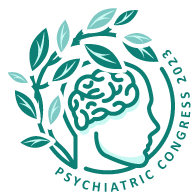
Nahed Khairy
Consultant Psychiatrist and Founder and CEO of NAPHSE, Egypt
Title: Recalling intuition in Medicine: The role of Emergencies with Psychiatric Presentations
Biography
Biography: Nahed Khairy
Abstract
Statement: This work presents the need for integrating emergency psychiatry across disciplines. It highlights the overlap in presentations and potential for misdiagnosis and thus delayed or even faulty intervention. Acute changes in mood, movement, sensorium or affect may be quickly dismissed as functional when indeed they may be organic or due to a medication adverse event. This population may present to the ER, but also to family medicine, internal medicine, psychiatry and neurology or even on a university campus, presenting as violence.
The need to have the mental set of accurate diagnosis paves the way for appropriate intervention. By analogy to CPR, ATLS and PALS, it is proposed that training in psychiatric emergencies be as basic and as widespread.
Three scenarios are shared to highlight the above.
Taking into consideration that emergencies do not occur in an organized manner nor in expected places, the task of the receiving medical team is to save the life of the person in the most efficient way. Emergencies with psychiatric presentations, affecting any of mental functions, including orientation, consciousness, movement, but also affect and thought, have not yet found their optimum place worldwide. This group of patients is subject to two types of cognitive errors when assessing them: unconscious bias, and psych-out whereby the likelihood that a patient with acute psychiatric symptoms be triaged against, is highest.
Findings: The skills, thus, both tacit, and tangible, that are required to address and serve the needs of this population are unique. It takes an orientation with a preventive inclination, a knowledge of medical mimics of psychiatric disorders and a genuine willingness to become aware of the bias that one holds against this population to ensure they are well served.

